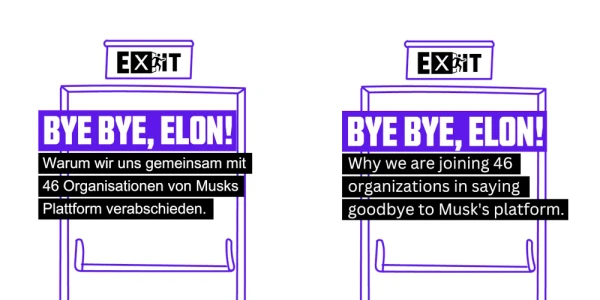The Future of Small Businesses in the Digital and AI Age
Small businesses are changing year by year, evolving from local brick-and-mortar stores to utilizing digitalization and AI
7/5/2024

In the bustling streets of Tokyo, a new generation of entrepreneurs is emerging, armed with smartphones and fueled by innovation. The landscape of small businesses is undergoing a radical transformation, driven by the relentless march of technology and artificial intelligence. As we stand on the cusp of a new era, it's crucial for aspiring business owners to understand and harness these changes to thrive in an increasingly digital world.
The Rise of AI-Powered Marketing: A Game-Changer for Small Businesses
According to Business News Daily, the digital revolution has democratized marketing, giving small businesses access to tools and strategies once reserved for corporate giants. At the forefront of this transformation is the integration of artificial intelligence into marketing strategies. According to a recent article in Business News Daily, AI-powered chatbots and conversational AI are becoming increasingly accessible to small businesses, fundamentally changing how they interact with customers.
Joey Penick, former vice president of marketing at Lumen Technologies, emphasizes the power of these tools: "AI-powered chatbots can be used for customer support, expanding contact strategy dramatically with a controlled message. These chatbots have become so lifelike that many customers don't even know the difference, but they offer the added benefit of being able to gather, analyze and provide actionable data that can be used to improve the customer experience."
This shift towards AI-driven marketing is particularly significant for small businesses in Tokyo's competitive market. With limited resources and manpower, the ability to provide 24/7 customer support and personalized interactions through AI can level the playing field against larger competitors. Imagine a small ramen shop in Shinjuku using a chatbot to take reservations, answer frequently asked questions about their menu, and even provide personalized recommendations based on a customer's past orders – all without requiring additional staff.
Moreover, the emergence of sophisticated AI tools like ChatGPT is opening up new possibilities for content creation and marketing strategy. Small business owners can now leverage these technologies to generate marketing copy, social media posts, and even basic data analysis, tasks that previously might have required hiring specialized professionals.
The impact of AI extends beyond just customer interactions. Data analytics, powered by machine learning algorithms, is becoming increasingly sophisticated and accessible. This allows small businesses to gain insights into customer behavior, optimize their operations, and make data-driven decisions that were once the domain of large corporations with dedicated analytics teams. For instance, a boutique fashion store in Harajuku could use AI-powered analytics to predict trends, optimize inventory, and personalize marketing campaigns for different customer segments. This level of precision in business operations was unthinkable for small businesses just a few years ago. However, it's important to note that while these AI tools are powerful, they are not a magic solution. As Allen Adamson, adjunct professor at New York University's Stern School of Business, points out, "The basic principles of how you market and build a brand haven't changed — despite what everyone says — in the past 10 or 15 years. What technology has done overall is magnified what was always true."
This perspective is crucial for small business owners in Tokyo to understand. While AI and digital tools can enhance and amplify marketing efforts, the fundamental principles of providing value, building relationships, and maintaining quality remain as important as ever.
Japan's Market Landscape and the Influence of Digitalization
According to the Country Commercial Guide by the U.S. Department of Commerce, Japan is one of the United States’ most important trade and investment partners. In 2022, bilateral U.S.-Japan trade in goods and services was worth $309 billion. Among the top U.S. exports to Japan are industrial machines, medicines, and medical equipment - all sectors that are being reshaped by digitalization and AI.
Japan’s consumer economy is underpinned by a per capita income of about $35,390, which fuels its strength as a consumer market. This robust consumer market is increasingly embracing digital platforms for both purchasing and selling, a trend that small businesses must adapt to in order to remain competitive. Furthermore, Japan's rapidly aging and declining population is sending ripple effects through its economy, shaping demand in sectors as disparate as robotics and pharmaceuticals, franchising, and real estate. This demographic shift is driving the demand for AI-driven solutions, particularly in the healthcare sector, to address the challenges posed by an aging society. The digital revolution and the advent of AI have created unprecedented opportunities for small businesses in Japan. AI technology, for instance, can help small businesses automate routine tasks, gain insights from data, and provide personalized customer experiences.
The U.S.-Japan Digital Trade Agreement, which came into force on January 1, 2020, includes high-standard provisions that ensure data can be transferred across borders without restrictions, guarantee consumer privacy protections, promote adherence to common principles for addressing cyber security challenges, support effective use of encryption technologies, and boost digital trade. This agreement has paved the way for small businesses to participate in the digital economy and benefit from the opportunities it offers.
AI and Digital Marketing: The New Frontier
In a recent article, Duncan MacRae explores the profound impact AI is having on digital marketing. AI is transforming how marketers interact with their audiences, predict customer behaviour, and optimise their strategies. The integration of AI into marketing practices is not only enhancing efficiency and customer engagement but also necessitates new skills and knowledge.
AI’s influence is evident in the creation of highly personalised marketing campaigns. Machine learning algorithms analyse vast amounts of data to derive customer insights, allowing marketers to tailor their messages to individual customers. For instance, Netflix and Amazon's recommendation systems use AI to suggest products and content based on user behaviour, leading to higher engagement and satisfaction. Predictive analytics is another area where AI is making a significant impact. By analysing historical data, AI can forecast future trends, helping businesses to plan their strategies effectively. Retailers, for example, use predictive analytics to optimise inventory levels and marketing efforts, reducing costs and improving customer satisfaction. AI-driven content creation and curation tools, like GPT-4, are revolutionising the way marketers produce content. These tools can generate high-quality text content, from blog posts to social media updates, saving time and resources for marketers. For example, The Washington Post uses AI to write news articles, freeing up journalists to focus on in-depth reporting.
Beyond marketing, AI is significantly improving customer engagement and support. Advanced technologies like chatbots and virtual assistants are becoming increasingly common. AI-powered chatbots provide 24/7 customer support, offering personalised responses and handling multiple queries simultaneously. Companies like H&M and Sephora use chatbots to assist customers with product recommendations, order tracking, and more. Virtual assistants, like Google Assistant and Amazon Alexa, streamline customer interactions by providing seamless and personalised services. They help businesses engage with customers through voice commands and smart interactions. AI is also transforming advertising by enabling precise targeting, real-time bidding, and campaign optimisation. Programmatic advertising uses AI to automate the buying and selling of ad space in real time, ensuring ads are shown to the right audience at the right time, maximising ROI. AI helps in segmenting audiences based on behaviour, demographics, and preferences. AI tools like Google Ads and Facebook Ads Manager allow marketers to target ads more effectively, resulting in higher engagement rates.
Despite its benefits, the use of AI in marketing also raises ethical concerns, such as data privacy and algorithmic bias, which need to be addressed. Companies must ensure compliance with data protection regulations like GDPR to protect customer information. Identifying and mitigating bias in AI-driven marketing tools is crucial to ensure ethical AI usage.
The Future Is Bright
By leveraging the latest digital marketing trends, such as long-form content, short-form video content, and AI-powered tools, entrepreneurs can engage their target audience, build brand loyalty, and drive growth. At the same time, understanding the dynamics of the market can open up new opportunities. Whether it's exporting goods to meet Japan's import needs or harnessing Japan's sophisticated consumer market, there are numerous ways for new businesses to thrive.




